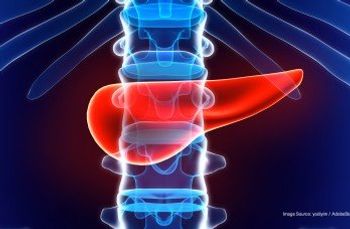
Certain RNA Expression Signatures Are Predictive of Outcomes for HER2+ Early Breast Cancer
Anti-HER2 blockade without chemotherapy in the treatment of HER2-positive early breast cancer may be possible in patients with certain RNA expression signatures.
Pathological complete responses (pCRs) and better rates of invasive disease-free survival (iDFS) after 12 weeks could be predicted by certain RNA expression signatures in patients with HER2-positive, hormone receptor (HR)–negative early breast cancer treated with pertuzumab (Perjeta) and trastuzumab (Herceptin) with or without paclitaxel.
The study to identify potential associations between biological expression signatures and responses (EudraCT Number: 2011-001462-17) was performed on samples gathered from patients treated as part of the phase 2 WSG-ADAPT trial (NCT01779206). The data were reported by Monika Graeser, MD, of the University Medical Center Hamburg in Germany, at the European Society for Medical Oncology Breast Cancer Congress 2021.1,2
“Activation of immune-related genes and pathways appears to be associated with improved iDFS in the entire cohort as well as the neoadjuvant chemotherapy–free arm,” Graeser said. “Patients with upregulated immune-related gene signatures in their tumors could be candidates for de-escalation concepts in HER2-positive early breast cancer.”
The patient population included those with cT1 to cT4c/cN0-3 HER2-positive/HR-negative breast cancer treated with pertuzumab plus trastuzumab (n = 92) or the HER2-targeted combination plus paclitaxel (n = 42). Trastuzumab was started at 8 mg/kg every 3 weeks and de-escalated to 6 mg/kg and pertuzumab was de-escalated from 840 mg down to 420 mg and was administered every 3 weeks. Paclitaxel was given weekly at 80 mg/m2.
Biopsies obtained at baselines (n = 117) were used to evaluate gene expression signatures using the NanoString Breast Cancer 360 panel. Logistic and Cox regression models were used to standardize gene expression signatures by pCR and iDFS.
Biomarkers for pCR included ERBB2 (odds ratio [OR], 1.7; 95% CI, 1.1-2.7) and estrogen receptor pathway signaling signatures (OR, 1.7; 95% CI, 1.1-2.6). An expression signature that was unfavorable for pCR was PTEN (OR, 1.6; 95% CI, 0.4-0.9).
The presences of stromal tumor-infiltrating lymphocyte (sTILs) were also analyzed in 119 samples, with 76 patients having sTILs levels at 3 weeks of treatment. However, sTILs at baselines or at 3 weeks of treatment nor the change in sTILs between the 2 timepoints were predictive of pCR. The investigators did note a correlation between baseline sTILs and immune-related gene signatures, leading them to the hypothesis that the latter can “augment morphological data from sTILs regarding immune processes and outcome estimation.”
For the assessment of iDFS, there were 11 events in the pertuzumab/trastuzumab group and 2 in the pertuzumab/trastuzumab plus paclitaxel group at a median follow-up of 60 months. Of note, there were no iDFS events following pCR.
Analysis of the 2 groups showed that immune-related signatures such as TIS, cytotoxic cells, cytotoxicity, macrophages, MHC2, PD-1, IDO1, and ER signaling signatures were favorable for iDFS rates. In the group receiving pertuzumab/trastuzumab without paclitaxel, immune-related signatures such as APM, CD8+ T cells, IFNy, inflammatory cytokines, PD-L1, PD-L2, and regulatory T cells were determined favorable for iDFS benefit.
The investigators noted that the phase 2 Keyriched-1 trial (NCT03988036) is underway to examine the combination of immunotherapy with pembrolizumab (Keytruda) plus anti-HER2 blockade of trastuzumab/pertuzumab in patients with early breast cancer that is HER2-positive or of a HER2-enriched intrinsic subtype. The primary end point of the trial is pCR with secondary measures of immune activation.
References
1. Graeser M, Gluz O, Biehl C, et al. Impact of RNA expression signatures and tumor infiltrating lymphocytes (TILs) for pathological complete response (pCR) and survival after 12 week de-escalated neoadjuvant pertuzumab + trastuzumab +/- paclitaxel in the WSG-ADAPT HER2+/HR- trial. Ann Oncol. 2021;32(suppl 2):LBA2. doi:10.1016/annonc/annonc505
2. Identification of potential biomarkers for clinical benefit following dual neoadjuvant anti-HER2 blockade in HER2 -positive/HR-negative early breast cancer. ESMO Oncology News. May 8, 2021. Accessed May 10, 2021. https://bit.ly/2SF4SQd
Newsletter
Stay up to date on recent advances in the multidisciplinary approach to cancer.












































